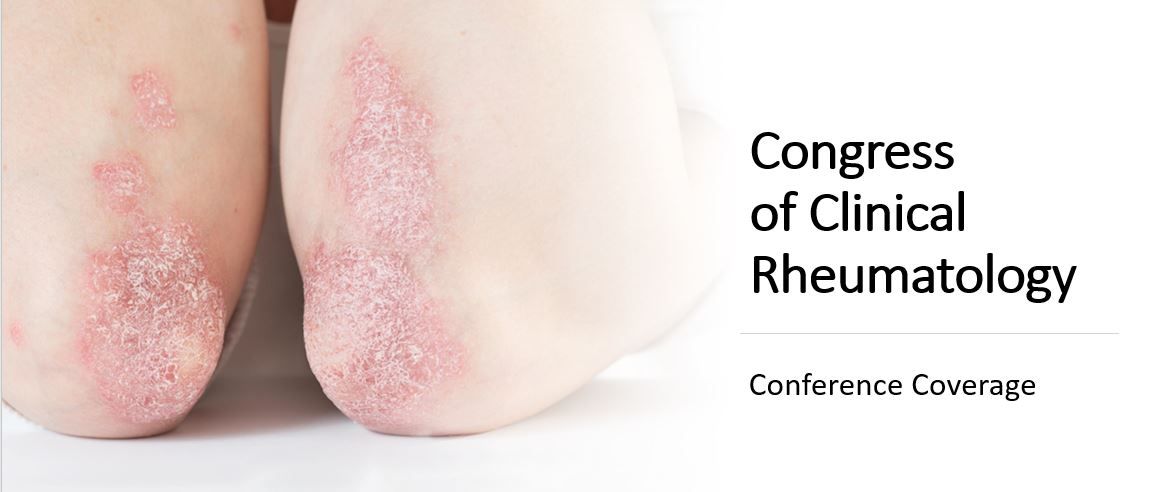JAK1 Inhibitor Filgotinib Meets PsA Safety Profile
The investigational JAK inhibitor filgotinib―which is under study as a treatment for a number of rheumatic diseases―has been shown to be safe and well tolerated in psoriatic arthritis patients.
(©Snab,AdobeStock_332799872)

Filgotinib has a similar safety profile for psoriatic arthritis as it does for rheumatoid arthritis, according to the findings of new research presented at the Congress of Clinical Rheumatology East 2020 meeting.
No new or unexpected safety signals were discovered, while filgotinib was generally well-tolerated and sustained efficacy up to open-label extension at 52 weeks.
Laura Coates, MBChB, MRCP, PhD, and investigators evaluated the interim safety and efficacy of filgotinib 200 mg in patients participating in EQUATOR2 at 52 weeks’ treatment. Phase 2 of the EQUATOR study, a 16-week, double-blind, randomized controlled trials demonstrated filgotinib significantly improved multiple disease domains versus placebo and was well-tolerated among patients with psoriatic arthritis. EQUATOR2 is ongoing and assessing the long-term safety and efficacy of the therapy for up to an additional 148 weeks of treatment.
Patients with active psoriatic arthritis were randomized 1:1 to receive either oral filgotinib 200 mg or placebo once daily for 16 weeks in EQUATOR. Those included were at least 18 years old with psoriatic arthritis defined by Classification for Psoriatic Arthritis criteria, were diagnosed at least 12 weeks before screening, had moderate-to-severe psoriatic arthritis (at least 5 swollen joints and at least 5 tender joints), active or history of plaque psoriasis, and insufficient response to at least 1 conventional synthetic disease-modifying antirheumatic drug (csDMARD).
Those who completed EQUATOR were eligible for EQUATOR2. In EQUATOR2, patients received open-label oral filgotinib 200 mg once daily for up to 148 weeks. Of those enrolled in EQUATOR, 87% enrolled in the open-label extension.
Overall, half of patients were female, the mean age was 50 years old, and the mean duration of psoriatic arthritis was 7 years. Some patients (15%) received prior anti-tumor necrosis factor therapy and 74% received concurrent csDMARD therapy at baseline and during the study. In the filgotinib and placebo groups, median Psoriasis Area and Severity Index score was 6.5 (IQR, 2.6-15) and 6.9 (IQR, 3.8-18.6), respectively. The mean Psoriatic Disease Activity score was 6.1 for filgotinib and 6.2 for placebo, and the mean Disease Activity Index for psoriatic arthritis score was 44 and 47.8 for filgotinib and placebo, respectively.
Total filgotinib exposure was 160 patient-years with a median time on the therapy as 66 weeks. Total placebo exposure during the core EQUATOR study was 20 patient-years with a median time on placebo as 16 weeks.
Treatment-emergent adverse events were mostly mild or moderate. There was 1 patient who reported a serious, non-fatal, drug-related treatment-emergent adverse event with filgotinib during the EQUATOR2 open-label extension study. One patient treated with filgotinib died on day 106 of the core EQUATOR study due to a serious drug-related treatment-emergent adverse event of pneumonia. There was a low incidence of treatment-emergent adverse events, except for respiratory tract infection which occurred at a rate of 46.2 per 100 patient-years of exposure. Decreased lymphocyte and neutrophil counts were the most notable abnormal changes in laboratory parameters with filgotinib treatment.
At week 52 of the open-label extension, 81%, 55%, and 33% of patients achieved ACR20/50/70 responses. Response rates were maintained over time from open-label extension week 16 to week 52. At week 52, 34% of patients fulfilled criteria for minimal disease activity. Such rates were maintained over time from week 16 to week 52.
The investigators noted the safety profile of filgotinib in patients with psoriatic arthritis was consistent with findings from rheumatoid arthritis studies with no new or unexpected safety signals. In EQUATOR2, the therapy was well-tolerated and showed sustained efficacy up to open-label extension week 52.
EDITOR's NOTE: This article originally appeared on our sister site HCPLive.com.
_______________________
REFERENCE
The study, “Long-Term Safety of Filgotinib in Patients with Psoriatic Arthritis: Week 52 Safety Data from a Phase 2 Open-Label Extension Study,” was published as part of the Congress of Clinical Rheumatology East 2020 meeting.